2021 is going to be the year of the new deck. We kept the old deck for as long as we could but after this last winter, it’s probably going to give way if we try to use it for another season.
The original deck was built by the previous owners or maybe even the owners before that, and I never loved the design. It was kind of cool to look at, but not practical and there was a lot of wasted space.
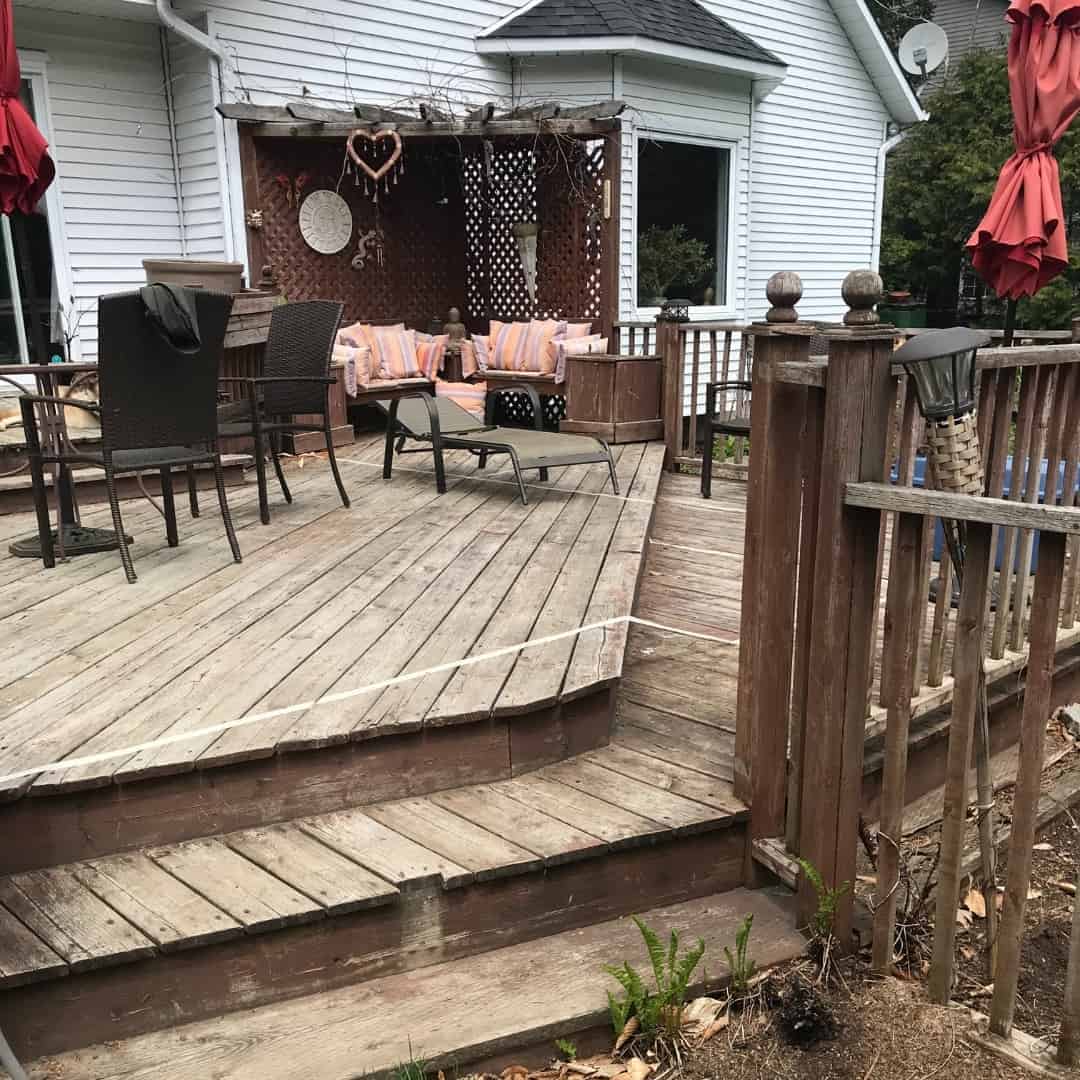
Nevertheless, we made it work for the last 15 years.
The deck supported us for many special occasions and lovely pastimes. We had dinner parties, pool parties, and BBQs. We dined outside almost daily from Spring to Fall – breakfast, lunch, and dinner. I sat under an umbrella and worked, read books, practiced yoga, chatted on the phone, and used the table for potting plants and starting seeds.
But now, it’s time for a new vision so we designed a new deck more suited to us.
This process has had so many parallels to work projects involving change that I thought it would be a great illustration of the stages we all go through in the workplace when change arrives. As it always does!
Here’s a graph adapted from the work of Don Kelley and Daryl Conner called the Emotional Cycle of Change from their Annual Handbook for Group Facilitators.
According to Kelley and Conner, the emotional cycle of change has five stages:
Stage 1: Uninformed optimism
Stage 2: Informed pessimism
Stage 3: Valley of Despair
Stage 4: Informed optimism
Stage 5: Completion
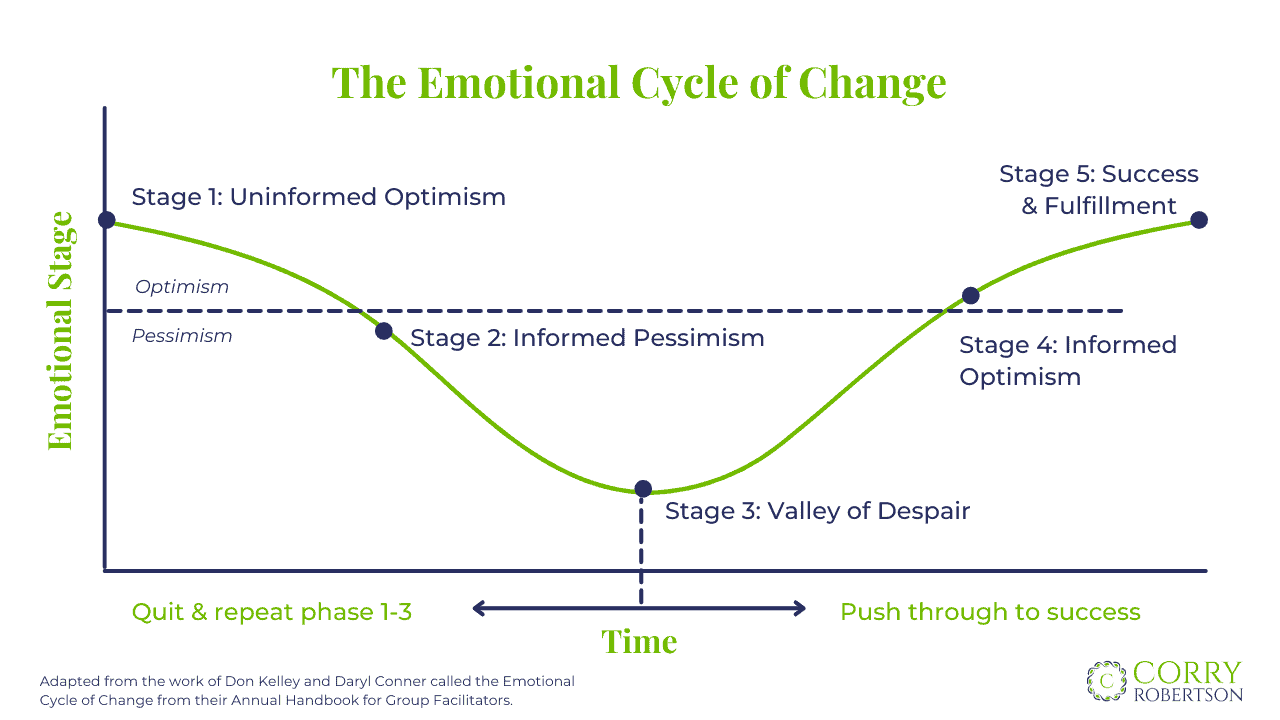
Human beings are hardwired to resist or even hate change.
The status quo, even if it’s unpleasant, often feels like “better the devil you know than the devil you don’t” so we try to keep things the same for as long as possible. We make do.
In an effort to not waste time or money we’ve been making do with our deck and stepping around the weak spots. Can you relate to this?
When we finally decide to make the change, we often have an emotional experience, that transpires like this:
1. Uninformed optimism: First of all, we dream big, and visualize the best-case scenario for the entire process and outcome. We haven’t done our homework yet with regards to the time it will take, the budget, or the possible obstacles that will crop up along the way.
2. Informed pessimism: Pessimism creeps in when the benefits begin to feel out of reach, we’ve lost touch with the purpose of the change and we begin to experience the impact of the costs of time, money, and resources.
For the deck project, we had to take into account that the cost of lumber is very high right now and we could easily be way over budget – if we weren’t realistic about our expectations.
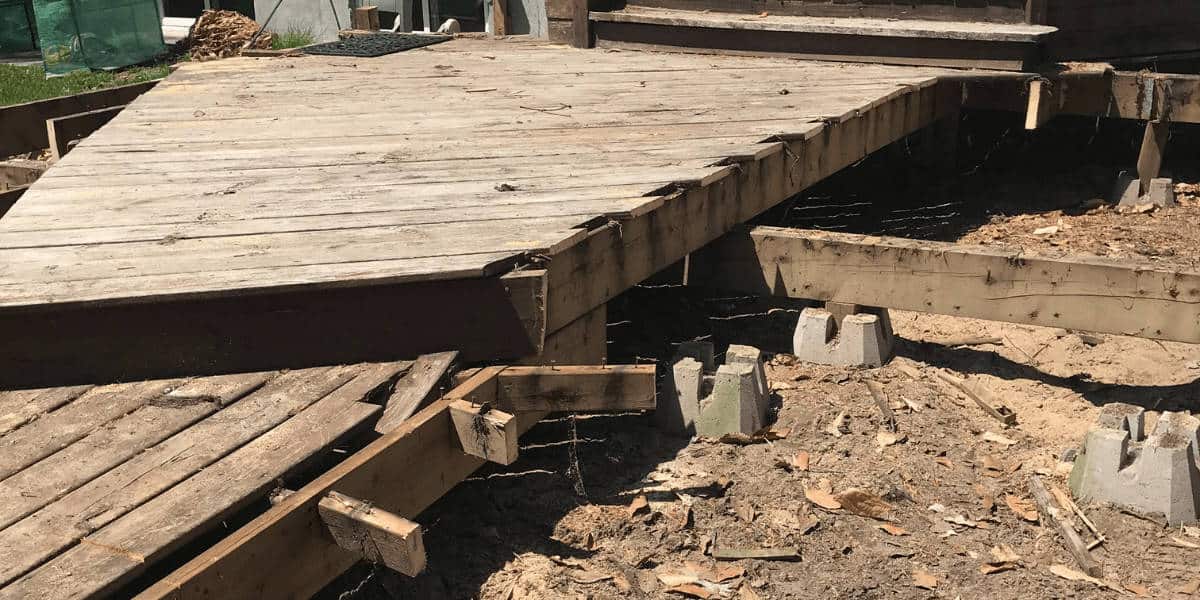
As I watched the demo mess get bigger and bigger, I thought WOW – this project is making a bigger mess than I expected! Now I have no deck and a huge mess. But – it’s too late now to turn back…and so I reached:
3. The Valley of Despair: Almost everyone feels some degree of discomfort with change so the term Valley of Despair (although for the most part an exaggeration) makes a point. There is no going back now and the project feels like more than we bargained for. We start to question our wisdom in starting this thing in the first place, we start getting nostalgic and wonder if the old way wasn’t so bad after all…maybe we should have just made do! We look for a way out because we no longer believe that we can deal with the change process.

I’m a big believer in being gentle on this planet so I re-use and repurpose anything that I can. My plan was to salvage the wood from the old deck so that we can use it to make planter boxes to go around the entire deck.
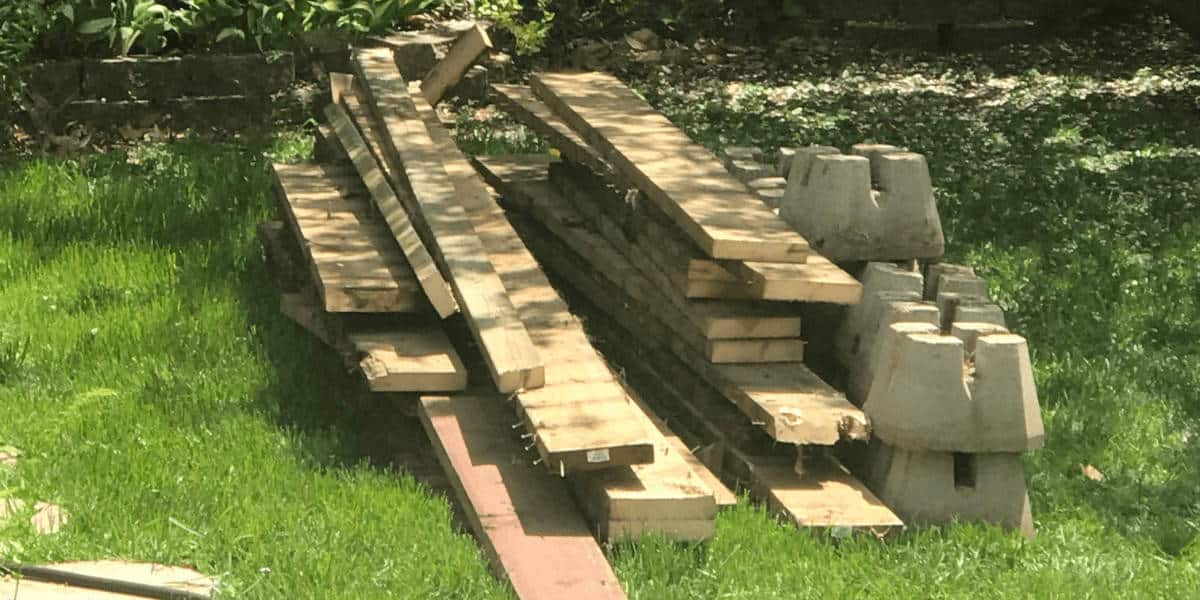
Because we left the deck project go for so long, most of the wood could not be salvaged, and this is what we have to work with. I’m not sure it’s enough to make as many boxes as I had in mind, but we’ll see. And that brings me to:
4. Informed optimism: In informed optimism, we start to feel better when you see things taking shape. We start to believe in our vision again and we can start looking forward to the future.
5. Success and fulfillment is the final destination of this emotional journey. All of the hard work feels like it was well worth the investment. What was all the fuss about? We should have done this years ago!
To be honest, as I write this I’m not even at stage 4 yet. The new deck isn’t near to being finished! I’m OPTIMISTIC that we will be moving forward soon and I will see the success and fulfillment rising up to meet me.
I’ll be sure to share some pictures of the new deck on social when it’s done (are you following me on social? If not, just click on the links below).
This whole process made me wonder – what projects have you started? How are they coming along? Are you learning any lessons along the way?
Can you relate to the emotional experience?
For those of you who are leading change, remember that the emotional journey is very real for people. When you take it into account, your change will be much easier to manage, and it will be more successful, sooner.
We are human beings. Not humans doing.
As much as we might wish that our “human resources” will function like a piece of well-oiled office machinery, that’s simply not the case. We think and hope that when the boss says “change” the employee will quickly change – just like when we hit print on the computer and the printer prints.
But office machinery does not have an emotional experience. We do.
Regardless of how much we may wish to take the emotion out of workplace experiences, we simply can’t.
The best leaders are the ones who have the skills to lead the whole person.
Just think how much faster and easier you could move through the emotional cycles of change if you knew how to use change management fundamentals to coach your people through the process!
As for me and my new deck, I’m looking forward to reaching that success and fulfillment stage, and enjoying the change!
Read Part 2: Wilting, decks, and change…oh my! here.




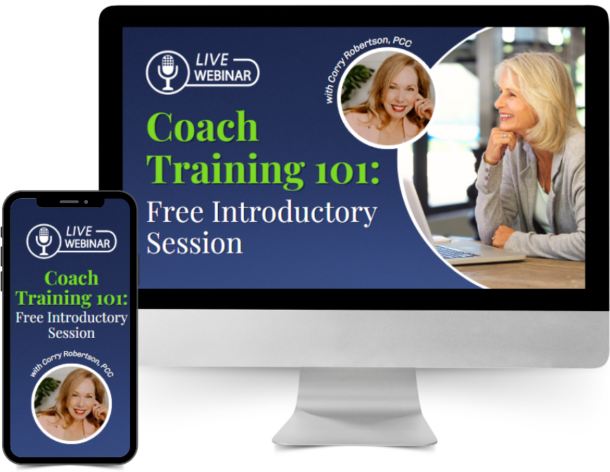
0 Comments